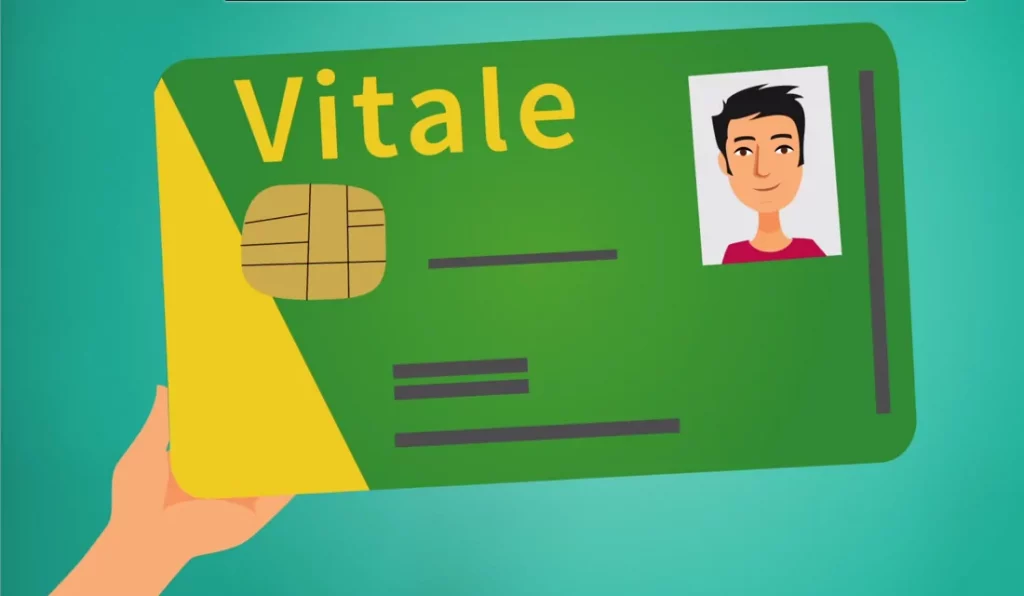Moving to France ? Here is your expert guide — created by Alpina Relocation.
We help international families settle smoothly in France, and more specifically in the French Alps — from home finding to administration support.
1 - Introduction
Moving to France? Here’s what you need to know to access healthcare with confidence.
Among the many administrative steps to anticipate when relocating to France, registering with the French healthcare system is essential — but often misunderstood by newcomers.
From social security and the Carte Vitale to health insurance (mutuelle) and processing times, it’s best to get ahead of the curve.
At Alpina Relocation, experts in international mobility, we guide you step-by-step to make accessing healthcare in France smooth and stress-free.
We also assist you with all other relocation services.

2 - How Does the French Healthcare System Work?
The French system relies on two key components:
Health Insurance (Sécurité Sociale): reimburses a portion of medical expenses (usually around 70%).
Mutuelle (complementary health insurance): covers the remaining costs, depending on the policy.
📌 To benefit from coverage, you must register with Assurance Maladie (the French national health insurance), which is mandatory for expats residing in France for more than 3 months.
3 - How to Register with French Social Security
▶ If you’re an employee
Your employer will declare your hiring to URSSAF (French social contributions office).
You’ll then need to create an account on ameli.fr and send the following documents:
Passport or ID card,
Residence permit or long-stay visa (VLS-TS),
Employment contract or employer’s certificate,
French bank account details (RIB),
Proof of address in France,
Birth certificate (translated if needed).
▶ If you’re self-employed, a student, or inactive
You must apply for affiliation online or by post via the CPAM (Caisse Primaire d’Assurance Maladie) of your area.
Requirements vary based on your status (e.g., PUMA for inactive residents, student health, or voluntary insurance).

4 - The Carte Vitale: Your Health Passport
Once registered, you’ll receive a temporary social security number, followed by a permanent one.
You can then apply for your Carte Vitale, a smart card that holds your personal health data.
📌 It allows fast processing and direct reimbursements for medical visits and prescriptions.
🕑 Note: Getting your Carte Vitale may take several weeks, especially during your initial application. Keep all receipts and medical documents in the meantime so you can claim refunds manually.
5 - What Does French Social Security Cover?
▶ Doctor visits (GPs, specialists)
▶ Hospitalization
▶ Prescription medication
▶ Medical tests and diagnostics
▶ Maternity care and pregnancy-related services
Reimbursements are based on a fixed rate set by the government. The remaining balance (called reste à charge) is typically covered by your mutuelle.
6 - What Is a Mutuelle and Is It Mandatory?
A mutuelle is a complementary health insurance. It’s not mandatory but strongly recommended, especially to reduce out-of-pocket expenses.
▶ If you’re employed, your company will usually offer a group mutuelle.
▶ If you’re a student, freelancer, or job-seeker, you must choose a private mutuelle on your own.
💡 At Alpina Relocation, we connect you with our trusted partners for expat-friendly health insurance plans.

7 - Special Cases: Foreign Nationals in France
▶ EU/EEA/Swiss Citizens
You may use your European Health Insurance Card (EHIC) for temporary stays.
For long-term residence, registering with the French system is advisable.
▶ Non-EU Nationals
You must apply for CPAM affiliation after three months of legal residence, unless you’re employed — in which case, registration starts upon hiring.
▶ International Students
You can register for student health insurance via etudiant-etranger.ameli.fr once enrolled in a French institution.
8 - Essential Healthcare Steps Upon Arrival
✅ Register with the CPAM or open an Ameli account
✅ Choose a general practitioner (médecin traitant) for full reimbursement
✅ Subscribe to a mutuelle
✅ Keep all medical documents until you receive your Carte Vitale
✅ Check vaccination requirements, especially for children
Why choose ALPINA to assist you?
Wherever you settle in France, Alpina Relocation will assist you with:
• 📑 Building and submitting your health insurance application
• 💬 Communicating with CPAM (in French)
• 💳 Requesting your Carte Vitale
• 🤝 Connecting you with suitable mutuelle providers
• 📞 Providing full support until you’re fully covered
9 - CONCLUSION ET FAQ
⚠ Delays in registration may lead to partial or delayed reimbursements.
Get started as soon as you arrive to ensure smooth access to care.
📞 Contact Alpina Relocation for personalized guidance.
🚀 Your health is too important to leave to chance — get covered from day one!
❓ FAQ - Your question
🕐 How long does it take to receive the Carte Vitale?
👉On average, it takes 6 to 8 weeks after your social security registration is validated. While waiting, keep all your medical receipts so you can request reimbursements manually.
🌍 Can I access French healthcare if I don’t work?
👉 Yes, in many cases. If you’ve lived in France for more than 3 consecutive months and your stay is legal and stable, you may qualify under PUMA (Universal Health Protection). You’ll need to provide proof of residency, income, and immigration status.
💸 Do I need a private health insurance (mutuelle) in addition to social security?
👉It’s not mandatory, but highly recommended. French social security usually covers around 70% of basic medical costs, and many services (like dental care, glasses, and hospital stays) are poorly reimbursed without a top-up health insurance (mutuelle).
🌐 Is there an official website for managing my health insurance?
👉Yes: www.ameli.fr is the official website of the French national health insurance (Assurance Maladie). There, you can create an account, track reimbursements, submit documents, and request your Carte Vitale.



